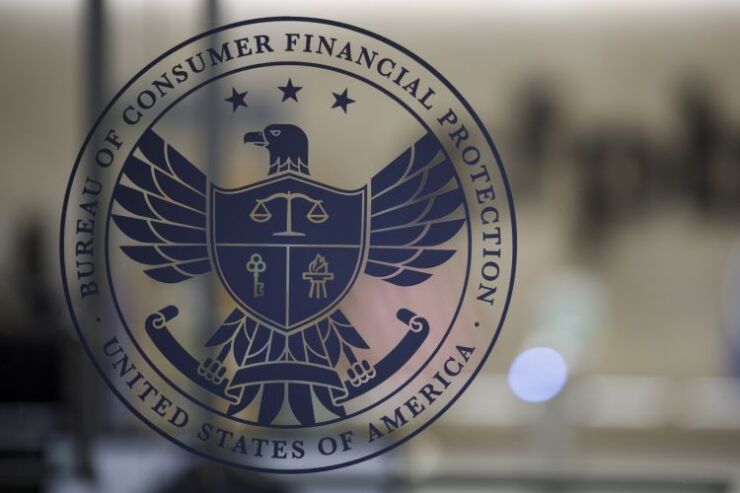The Consumer Financial Protection Bureau issued a second request for public comment on big technology companies and online payment platforms as the agency seeks to better understand risks posed to consumers.
The CFPB said Monday that it wants additional public comment on Big Tech platforms' business practices, including whether companies are adhering to key consumer protections and how they may be assessing fines and penalties.
The bureau said it is seeking input specifically on Big Tech firms' so-called acceptable use policies, which lay out the constraints a consumer must agree to in order to gain access to certain networks or services.

The bureau received roughly 93 public comments to a request for information last year and plans to reopen the public comment period for 30 days with additional questions. A notice will be published in the Federal Register in coming days with additional information,
"The scale and market power of large technology companies raise concerns about potential new risks to consumers and to broader competition in the marketplace," the bureau said in a press release. "We are seeking additional public input on companies' acceptable use policies and their use of fines, liquidated damages provisions, and other penalties."
Last year, CFPB Director Rohit Chopra ordered six of the largest tech firms — Amazon, Apple, Alphabet's Google, Meta, PayPal and Square (now Block) — to
Chopra has continued to use his position to warn of tech giants'
The CFPB's





